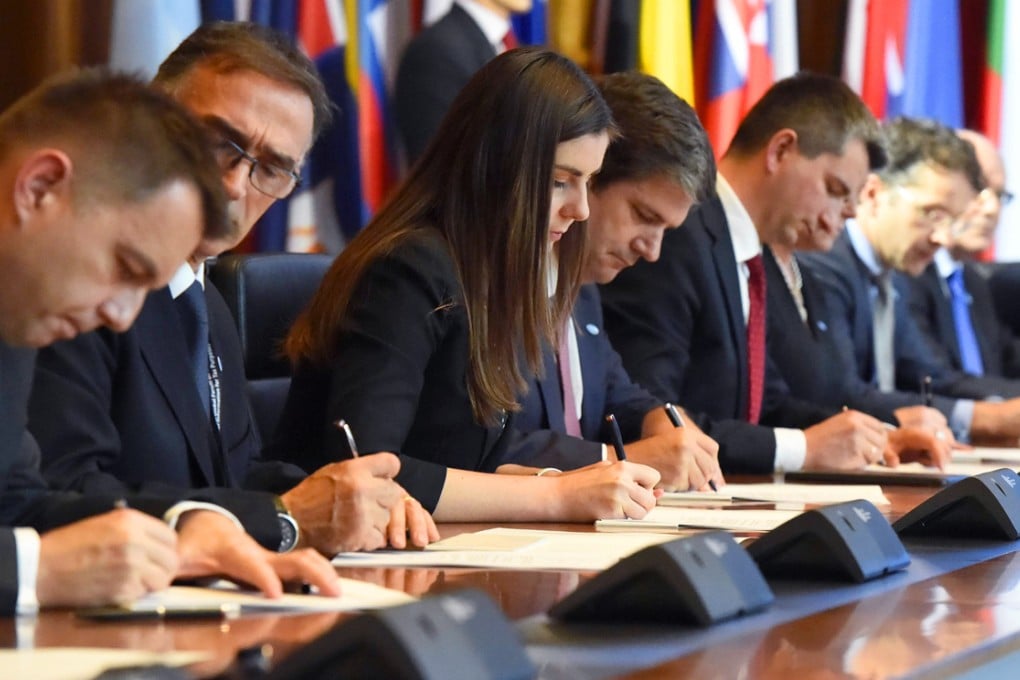China, Hong Kong committed to global alliance to end banking secrecy
More than 80 countries will exchange information in battle against fraud

China is among more than 80 countries committed to signing a deal that could help end banking secrecy. Hong Kong has also pledged to join. Its sponsors hope the pact will be a major step in the global battle against tax evasion and fraud.

Among the first round of signatories or "early adopters" were EU countries as well as previously staunch proponents of banking secrecy such as Liechtenstein and tax havens like the Cayman Islands and British Virgin Islands.
Others, such as Switzerland, Brazil, Canada, mainland China, Hong Kong, Monaco and Russia, have committed to start in 2018.
The signing of the pact in Berlin crowned two days of talks at the OECD's Global Forum on Transparency and Exchange of Information for Tax Purposes, hosted by German Finance Minister Wolfgang Schaeuble. The aim is for every country to be kept fully informed about the offshore holdings of its citizens.
Tax evasion was a "scourge across the world", British finance minister George Osborne said.
He said the signing of the deal would "reduce the places that tax evaders can hide their money".